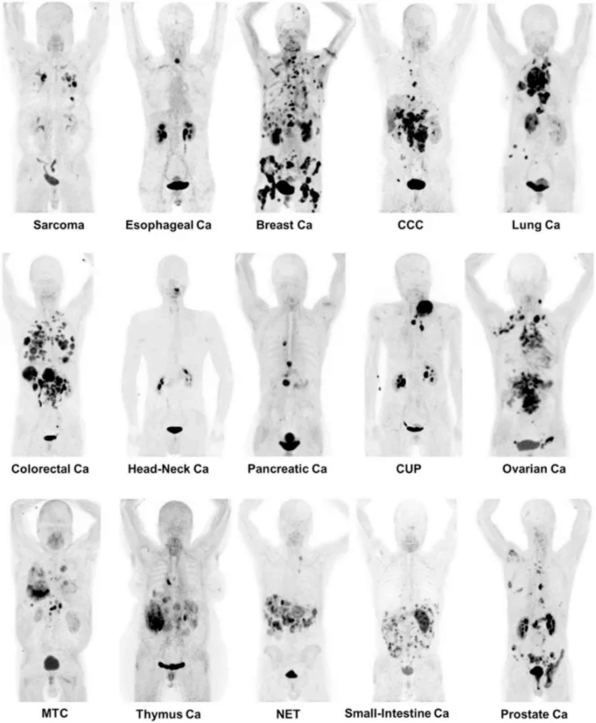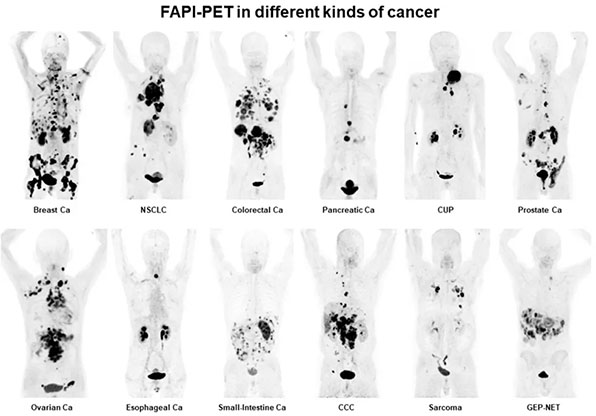Tumor screening is an important way to detect cancer and precancerous lesions early. Tumor cells can be found in ultra-early tumor screening when floating cancer cells are not found, which can provide basis for early intervention and treatment of cancer and maximize the cure rate. If the tumor can be found in the early stage, 95% can be cured.
FAPI (fibroblastactivation protein inhibitor) is called fibroblast activation protein (FAP) inhibitor, which is one of the specific markers of tumor-related fibroblast TAF. The fibroblast, TAF accounts for more than 90% in tumor tissues, but it is not expressed or expressed too low in normal cells. FAP plays an important role in promoting the growth, invasion, metastasis and immunosuppression of tumor cells, which is capable of effectively identifying multiple tumors and achieve accurate early screening at the same time.
68Ga-FAPI radiotracer targets cancer-related fibroblasts. Many cancer-related fibroblasts differ from normal fibroblasts in their specific expression of fibroblast activating protein (FAP). Using FAPI as a ligand of radioactive tracer will provide more possibilities for diagnosis and treatment in the future.
Fig. 68Ga-FAPI PET/CT imaging of 15 different types of cancer. Ca5 cancer; CCC 5 cholangiocarcinoma; primary unknown CUP 5 cancer; MTC 5 medullary thyroid cancer; NET 5 neuroendocrine tumor.
Journal Title:
68Ga-FAPIPET/CT: Tracer Uptake in 28 Different Kinds of Cancer.J Nucl Med 2019; 60:801–805 Original text


In the annual image award presented at the 2019 SNMMI Annual Meeting, the new 68Ga-FAPI tracer PET from Heidelberg University Hospital in Germany can provide clear tumor contour and high image contrast. The research shows that 68Ga-FAPI PET/CT imaging has good imaging characteristics in 28 different tumors, especially sarcomatous cancer, esophageal cancer, breast cancer, cholangiocarcinoma and lung cancer.
SNMMI2019 Image 2019: Imaging results of 68Ga-FAPI-PET/CT applied to 12 different types of cancer patients. Ca= cancer; NSCLC= non-small cell lung cancer; CUP= unknown primary cancer; CCC= cholangiocarcinoma; GEP-NET= gastrointestinal pancreatic neuroendocrine tumor.
The images displayed on SNMMI 2019 showed the uptake of FAPI, a new cancer tracer, in 12 tumor entities. FAP is over-expressed in cancer-related fibroblasts of several tumor entities. The study quantifies the uptake of FAPI PET/CT in 22 tumor entities, with the view to develop the most promising applications for various primary and metastatic tumors.
Journal Title:
SNMMI Annual Meeting Spotlights NewInnovations and Expanding Horizons.J NuclMed. 2019;60:8N-9N. Images from the Annual Meeting